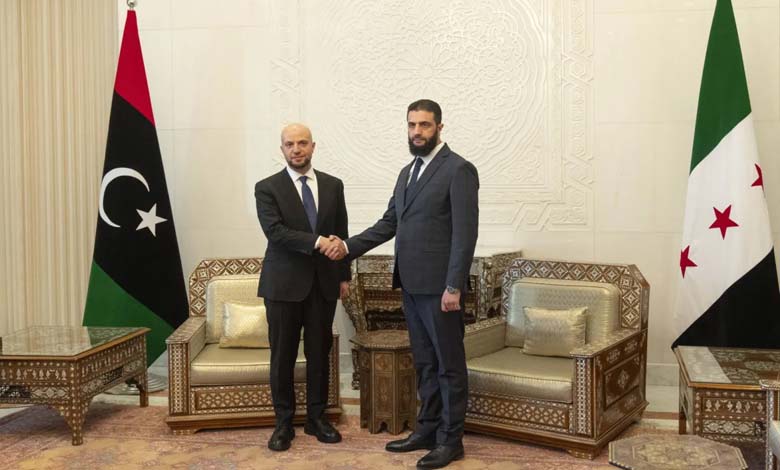Libyan Muslim Brotherhood Member Incites Armed Resistance Inspired by Syrian Factions

Mohamed Mourgham, a member of the Muslim Brotherhood and former representative in the defunct National General Congress, rejects dialogue with Haftar, considering it a breach of red lines.
Mohamed Mourgham, a member of the Muslim Brotherhood and former representative in the National General Congress, has refused any reconciliation or dialogue with the commander-in-chief of the Libyan National Army, Field Marshal Khalifa Haftar. He described this as a violation of many taboos and called for emulating Syrian factions that took up arms and ultimately succeeded, in his view, in overthrowing Syrian President Bashar al-Assad’s regime.
-
Russia and Iran expressed their concerns about Syrian and Libyan fighters in Nagorno-Karabakh
-
French and German Conditions for Supporting the New Syrian Leadership
This is not the first time Mourgham has incited violence and the use of arms against the Libyan Armed Forces led by Haftar. He previously urged the head of the expired Government of National Unity, Abdelhamid Dbeibah, to collaborate with Syria’s new leadership, represented by Ahmad Al-Charaa (formerly known as Abu Mohammad al-Joulani, leader of Hayat Tahrir al-Sham, a radical Islamist organization). Mourgham regarded this cooperation as an opportunity to benefit from Syria’s experience in various fields, including economic, political, cultural, educational, and security aspects, according to the Libyan newspaper address Libya.
This incitement to violence comes as Libya’s crisis remains unresolved, with no breakthrough in sight due to political divisions and the lack of a consensus on holding national elections.
-
Hama Countryside: Massive Syrian Army Reinforcements and “Mass Fleeing” of Militants
-
Turkey expands its influence in Libya through military cooperation
In a Facebook post, Mourgham wrote: “Any reconciliation with Haftar and his clique includes multiple violations: granting impunity to criminals, denying justice to the oppressed, and giving Haftar another opportunity to implement his criminal project by legitimizing his role in the political scene.” He added: “The Syrian solution and the failed attempts at dialogue are clear examples before you.”
Mourgham’s stance aligns with that of Sadek Al-Ghariani, former mufti of the National Congress and a key figure of the Muslim Brotherhood in Libya. Al-Ghariani has repeatedly opposed national reconciliation efforts with the parallel authorities in eastern Libya, calling in several fatwas for armed resistance against eastern communities and the armed forces, deeming it a priority.
-
Betrayal and Corruption Plague Syrian Opposition Army
-
Bashagha’s appointment has confused the Libyan scene and Turkey is the biggest beneficiary
The radical Islamist faction led by Al-Ghariani supports the expired Government of National Unity under Abdelhamid Dbeibah. Al-Ghariani has frequently called for Dbeibah to remain in power, using his fatwas as a tool in the ongoing political strife.
Recently, the Libyan Parliament passed a national reconciliation law, a move that has sparked opposition among political factions. While the Presidential Council, led by Mohamed Al-Menfi, views this decision as complicating the process further, the Parliament continues to assert its authority by taking unilateral actions, such as stripping the Presidential Council of the title of Commander-in-Chief of the Armed Forces.
Despite these tensions, significant progress has been made, including the signing of a pact between the Toubou and Arab communities in Murzuq, southern Libya, marking the end of years of conflict.
-
In coordination with Qatar – Turkey decides to transfer mercenaries from Libya and Azerbaijan to Afghanistan
-
300 foreign fighters removed from Libyan army
-
Turkey violates Libya’s sovereignty with new batch of Syrian mercenaries












